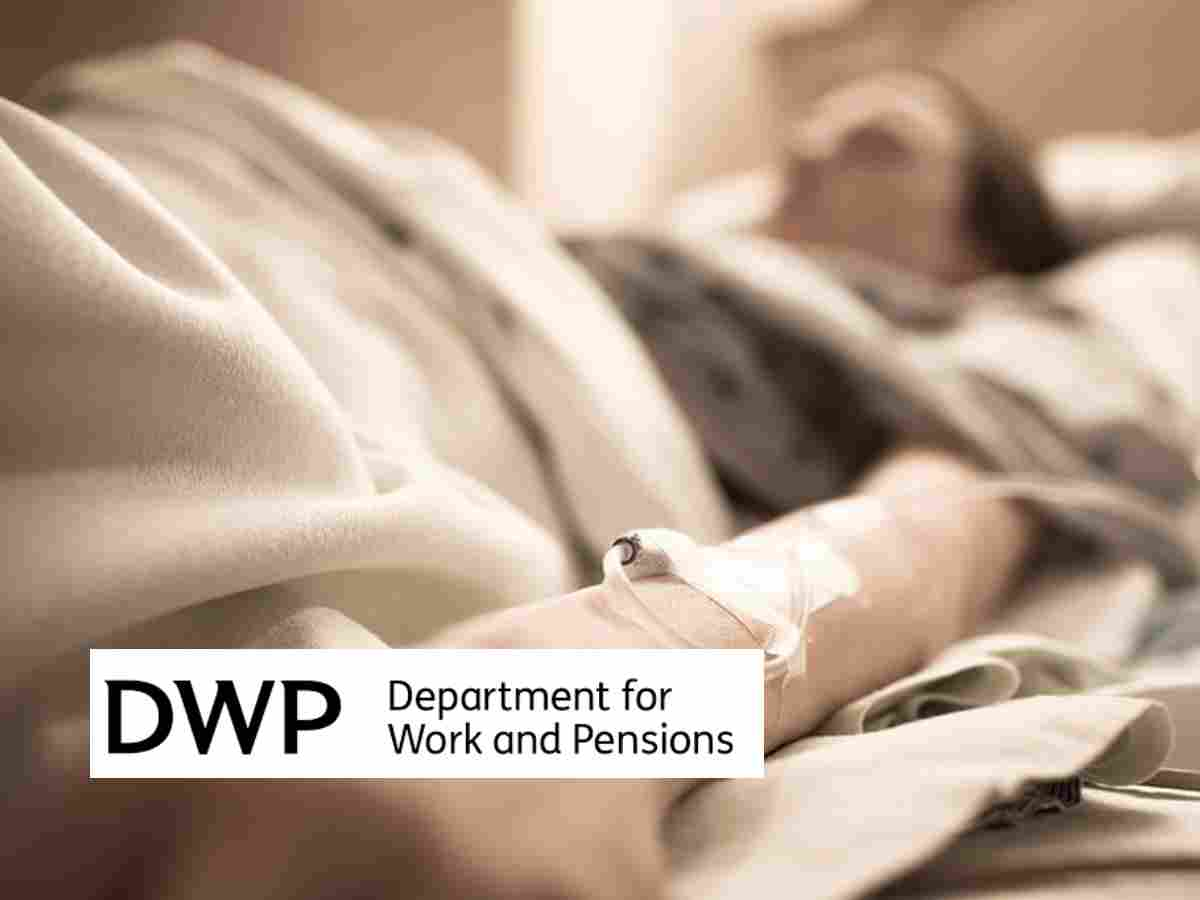A tranche of reports the Department for Work and Pensions (DWP) buried – including one for nearly two years – has exposed how it has been utterly failing chronically ill claimants. In particular, DWP PIP health assessments are massively stacked against people living with chronic health problems. Not only this, but the DWP’s processes have been actively making claimants’ conditions worse – while regularly denying people disability benefits altogether. Notably, the DWP’s own reports have shown just how sorely not fit for purpose the system is for those with fluctuating health conditions like myalgic encephalomyelitis (ME/CFS) and Ehlers-Danlos syndrome (EDS).
DWP PIP: reports sat on by the Tories as Labour sits on its hands too
The Canary’s James Wright and Steve Topple have both highlighted a cache of 30 new DWP reports. Labour dumped these out all at once on Monday 7 October. The government has claimed the previous Tory administration sat on these instead of publishing them.
Obviously, the timing and sudden glut of reports is highly suspect. It’s wholly plausible it published these like this on purpose. Specifically, this was to evade scrutiny, hoping the news cycle would move on before anyone could get their teeth into them.
So, it’s hardly surprising that some contained damning evidence of the harm the DWP’s benefit system is causing to chronically ill and disabled people.
Crucially, three of these reports had huge implications for prospective and current claimants living with certain chronic health conditions. In particular, chronic illnesses like myalgic encephalomyelitis (ME/CFS), and Ehlers-Danlos Syndrome.
ME is a chronic systemic neuroimmune disease marked by the hallmark symptom post-exertional malaise (PEM): a worsening of symptoms after physical, mental, social, or emotional exertion. Meanwhile, EDS is a group of connective tissue disorders in which collagen doesn’t work. It’s characterised by joint hypermobility, skin hyperelasticity, and tissue fragility.
Excluding people with fluctuating chronic health conditions
The Canary’s Steve Topple has already summed up the gist of one 2022/early 2023 report titled:
Barriers to Accessing Health Support for PIP, NS [new style] ESA, and UC Claimants
In short, it centred round how the DWP can ‘support’ claimants to access NHS treatments. Topple highlighted some glaring problems with this, which you can read about here.
Besides this one, there was another report called:
Experiences of PIP applicants who received zero points at assessment
It involved a series of interviews between Feb and March 2023. This was with 29 people that the DWP had awarded zero points to in their PIP applications. Disability News Service’s (DNS) John Pring has written about this report. As he articulated, the basic thrust of this was how once again, the entire process and outcome was “degrading” and left people feeling “numb” and “broken”.
Finally, a third report went by the heading:
The Impact of Fluctuating Health Conditions on Assessment
It entailed a survey of 297 people with fluctuating health conditions. A further 46 chronically ill and disabled people participated in a four-week diary study, with 49 more involved in in-depth interviews. Overall, this one explored experiences of people living with fluctuating conditions and disability benefits.
For instance, it highlighted some obvious but important things about the application and assessment processes, including:
- That the long and complex forms are “daunting” and “draining” for chronically ill claimants, and can cause flare ups in their health conditions.
- How time limits are wholly unsuitable for people with unpredictable fluctuating conditions that can vary in severity.
- The forms and assessments asked all the wrong questions. These were often too binary, and focused on fixed points in time. They posed questions like “can it be done” rather than “can it be done safely” without knock-on impacts.
It also drew attention to the fact that assessors often wouldn’t believe claimants lived realities. This fed into the feeling that assessors would use people’s so-called ‘good days’ against them – which we know they definitely do in practice.
However, a key take away from all three was that DWP has set up the PIP assessment process to exclude people living with fluctuating chronic health conditions. Worse than that, participants in each underscored how the DWP is actively harming patients with them.
Both ME and EDS have a long history of psychologisation, misdiagnosis, underfunded research, stigma, and abuse. What’s more, the DWP has long been at the forefront of all this in its drive to coerce patients with them into work. And what was clear in these reports was that the DWP doesn’t understand these conditions, or intend to support people living with them either.
A minefield for ME/CFS and EDS patients
Illustrating this directly, the reports included some truly abysmal accounts from people with these devastating health conditions.
One was 40-year-old John (not his real name) who lives with ME/CFS. The DWP’s PIP zero points report painted the stark picture of his experience applying for the disability benefit. It described how John is bedbound all but half an hour a day, and:
unable to read, watch TV, listen to music, or eat on his own.
Yet despite the fact John appears to live with severe ME, the DWP awarded him zero points. Accordingly, it denied him PIP altogether.
What’s more, the DWP assessor forced John to hold his assessment over two separate half hour sessions over the telephone. Apparently, it split this to “accommodate his fatigue” – but didn’t let him reschedule these when he was:
feeling particularly drained and unwell during his assessment… as he had done so once already.
John’s account suggests he’s hypersensitive to sound, as is the case for many severe ME patients. Given this, it’s likely the telephone appointments would have sent John into a severe crash.
Additionally, his case study also articulated the inaccessibility of the complex, lengthy PIP application form as well. John took three months to complete this due to the PEM impact of spending five minutes per day doing voice dictations to fill it in.
In short then, not only did the DWP determine John was ineligible for PIP, but it also made his health worse in the process.
DWP PIP process actively harming people with ME/CFS
Naturally, John was far from the only person living with complex chronic health conditions the DWP had denied disability benefits to either.
The fluctuating health conditions report introduced Aditi – a young woman living with fibromyalgia, hypermobility, ADHD, and dyslexia. Of course, Aditi’s so-called hypermobility – an unhelpfully non-specific term – is probably hypermobile EDS.
The report doesn’t elaborate, however, given that health professionals often misdiagnose hEDS as fibromyalgia, it could very well be the case. There’s also increasing evidence of the crossovers between neurodivergence and chronic health conditions like EDS and ME/CFS.
In a diary spanning four weeks, Aditi recorded her physical and mental health. For the most part, she rated it poorly, and had difficulty carrying out daily self care activities due to constant pain and fatigue. In one entry, she penned that:
I’m not even eaten yet. I’ve not left my bedroom today. I’ve just been trapped in my body and brain.
Aditi had applied twice for PIP, and both times the DWP had rejected her.
Then, a case study in the barriers report highlighted Caroline’s story of applying for PIP. It stated that she lives with severe arthritis and chronic fatigue.
Of course, it’s unclear if this means ME/CFS – but it’s plausible given the way the report seems to use “CFS” and “chronic fatigue” interchangeably. It was only on her second attempt that the DWP awarded her PIP. Unsurprisingly, the initial rejection adversely impacted Caroline as well:
The experience of being denied support despite the profound difficulties she faced had a severe impact on Caroline’s mental health at the time.
So, three SEPARATE reports depicted the damage DWP PIP assessments are doing to people living with fluctuating health conditions like EDS and ME. Of course, this is no coincidence – nor an accident either. As the Canary’s Steve Topple pointed out about the barrier report, there’s nothing ‘inadvertent’ about it.
This is the DWP making people physically and mentally sicker by design.
DWP still stuck in the past
What’s more, the reports themselves – and the conclusions they drew from these findings – were also particularly problematic.
For one, they were emblematic of a key problem they themselves had highlighted. That is, that the DWP is completely out of touch with these fluctuating chronic illnesses.
This was glaringly apparent in the terminology multiple reports used for conditions like ME/CFS and EDS.
Instead of the long-established patient community preferred term myalgic encephalomyelitis (ME) – reports typically used ‘chronic fatigue syndrome (CFS)’. Of course, it’s not entirely surprising they did this, given the corporate media still routinely call it this too.
Throughout though, the reports lazily conflated “chronic fatigue” – a symptom of many different health conditions, with CFS. This perfectly underlines one of the major bugbears ME patients have with this misleading diagnostic term.
Aside from massively misrepresenting it as a fatigue-based condition, CFS regularly gets confused with chronic fatigue as the symptom, when it’s its own distinct disease. In 2023, DWP researchers should know this – yet in at least three separate reports, it makes this oversight.
The fluctuating conditions report was among the most illustrative of this. Forget CFS, it simply stated “chronic fatigue conditions”, which presumably meant lumping ME amidst multiple health conditions with fatigue symptoms.
Archaic diagnostic terms in DWP PIP processes
On top of this, it dumped these patients into an umbrella category spanning mental health and other long-term health conditions. In fact, the appendix breakdown of conditions revealed it was actually much worse than this.
If we’re to assume participants living with ME/CFS fell under its hugely problematic “chronic fatigue conditions”, these didn’t actually even go in the “long-term health condition” categorisation at all. They would have come under “chronic pain or chronic fatigue”. Again, this was a broad and non-specific classification that would encompass many entirely unrelated and considerably different conditions.
Similarly, reports used out-of-date terms for EDS as well. In the PIP Zero Points report produced in 2023, it adopted the outdated diagnosis ‘Joint Hypermobility Syndrome’ (JHS). This was reclassified as hypermobile EDS or a type of hypermobility spectrum disorder (HSD) in 2017 – yet six years on, DWP researchers are still using this archaic term.
Worse yet, the barriers report – which DWP researchers also completed in 2023 – didn’t even bother with specific connective tissue disorder conditions. It simply listed ‘hypermobility’ in the annex – a broad symptom, rather than any particular condition in and of itself. Again though, much as it had with CFS and chronic fatigue, it used this interchangeably throughout the report with JHS.
Of course, this is precisely the problem. The DWP doesn’t understand or differentiate these and other chronic illnesses. It’s demonstrative of the broader unwillingness of the department to recognise them and the daily realities for patients.
Skirting round the real problem
However, the anachronistic terms were only part of the problem. It was what the reports recommended that really typified how DWP PIP fails chronically ill people – not least their incessant insistence that the processes themselves were the main issue, rather than the blatant systemic ableism they were documenting.
Ultimately, after all their findings, the best the reports could propose boiled down to:
- Enhancing the questions asked at assessments to better take account of fluctuating health.
- More time and flexibility in the application and assessment process.
- Upskill health disability assessors and other staff. This is mainly about improving disability and awareness training about fluctuating conditions, and giving staff a guide to work from.
- Give claimants a guide and more support help them describe their conditions better. Because evidently, claimants failing to put their daily lived reality into words is the problem here.
One especially vital oversight was the fact that it emphasised ‘improving’ all these processes. However, if you don’t also change the corresponding way the DWP awards points, it’s, for want of a better word, pointless.
Another issue was that the barriers to health support report seemed to be one big puff piece for NHS Talking Therapies. This is the already well established practice of putting job coaches in therapy settings.
Needless to say, this glorified cognitive behaviour therapy (CBT) – think yourself better type guff – heralds more harmful psychologisation for people living with ME/CFS, EDS, and other chronic health conditions.
Funnily enough, Labour is already seeking to take this approach further to hospitals more broadly. As the Canary pointed out, it’s all based on a hospital that’s already doing it.
That hospital just so happens to be headed by a notorious psychologist – Simon Wessely – who has pushed harmful psychologising treatments for people living with ME. Not to mention he was also central to promoting the flawed PACE trial part-funded by the DWP. It’s ostensible aim looked to be at least partly about aiding the department’s back-to-work coercion agenda.
And notably, in one telling paragraph that report states:
mental health support should be a priority, even where no mental health issues are known. The impact of condition management can be detrimental to mental health, whilst declining mental health can make it difficult to maintain condition management
In other words, it’s psychologising by any other name.
Labour will lap these up
So ultimately, the reports showed that the DWP’s benefits system is making severely chronically ill ME/CFS and EDS patients – and people with other similarly fluctuating chronic health conditions – sicker. At the same time it’s doing that, it’s regularly denying disability benefits to them.
These are chronically ill and disabled people that are bedbound, in constant pain, and entirely unable to look after their own daily care needs. Yet, as far as the DWP is concerned, they’re also the people who can and should be in work. It almost goes without saying then, Labour is going to lap that up.
Quite obviously, this tinkering around at the edges approach will suit the new government down the ground. It means the DWP – under new management – can continue forcing sick and disabled people into work. It simply has to slap on a few half-assed reforms like these to feign inclusivity.
All the while, it can avoid the real problem these reports and others have repeatedly shown. That it’s the DWP’s toxic systemically ableist culture that’s harming chronically ill claimants and leaving them behind.
Featured image via the Canary




